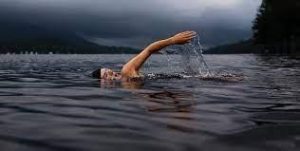Some of the Dangers of Swimming Outdoors

Swimming outdoors is an exhilarating experience that many people enjoy. However, it also comes with its own risks, and it is important to be aware of these before you go out and find some water to swim in! Children in particular are at risk when swimming, so it is always good to ensure that they are competent swimmers by having professional swimming lessons like these Mansfield children’s swimming lessons https://www.swim.co.uk/baby/venues/mansfield
If you are considering swimming outdoors now the weather is improving, here are some dangers to be aware of before you go…

Water Plants – The plants that can be found on the bottom of lakes can be dangerous to swimmers. It is not something that is common, but care should be taken, especially if you are tired and may sink lower into the water. It is always good to swim with someone so that if the worst should happen, they can help you, and deeper water could be safer as you are less likely to be near enough to the plants to cause a danger.
Cramp – Something that it is always important to be aware of is the risk of cramp, which is caused by the muscles going into spasm. If you are tired or have recently eaten, you are at more risk of cramp so use good judgement and common sense when making a choice to swim. You may learn the things that cause you to get cramps so that you can avoid them.
Temperature – Water temperature outdoors in the UK is rarely very warm, but in some areas and at certain times of the year it can be really cold! This can cause the body to go into shock, and the blood pressure to raise. When swimming in cold water, wear a wetsuit and get in slowly to reduce your risk. It is also important not to stay in cold water for long as you will risk hypothermia.

Waterborne Illness – Swimming in natural water is riskier from this point of view as it obviously doesn’t have the chlorine in it that a swimming pool has. The most dangerous disease to be aware of is Weil’s disease. It is not common, but you can limit your risk of this and other nasty waterborne illnesses by being careful to limit how much water gets into your mouth and by showering as soon as you can after your swim.



